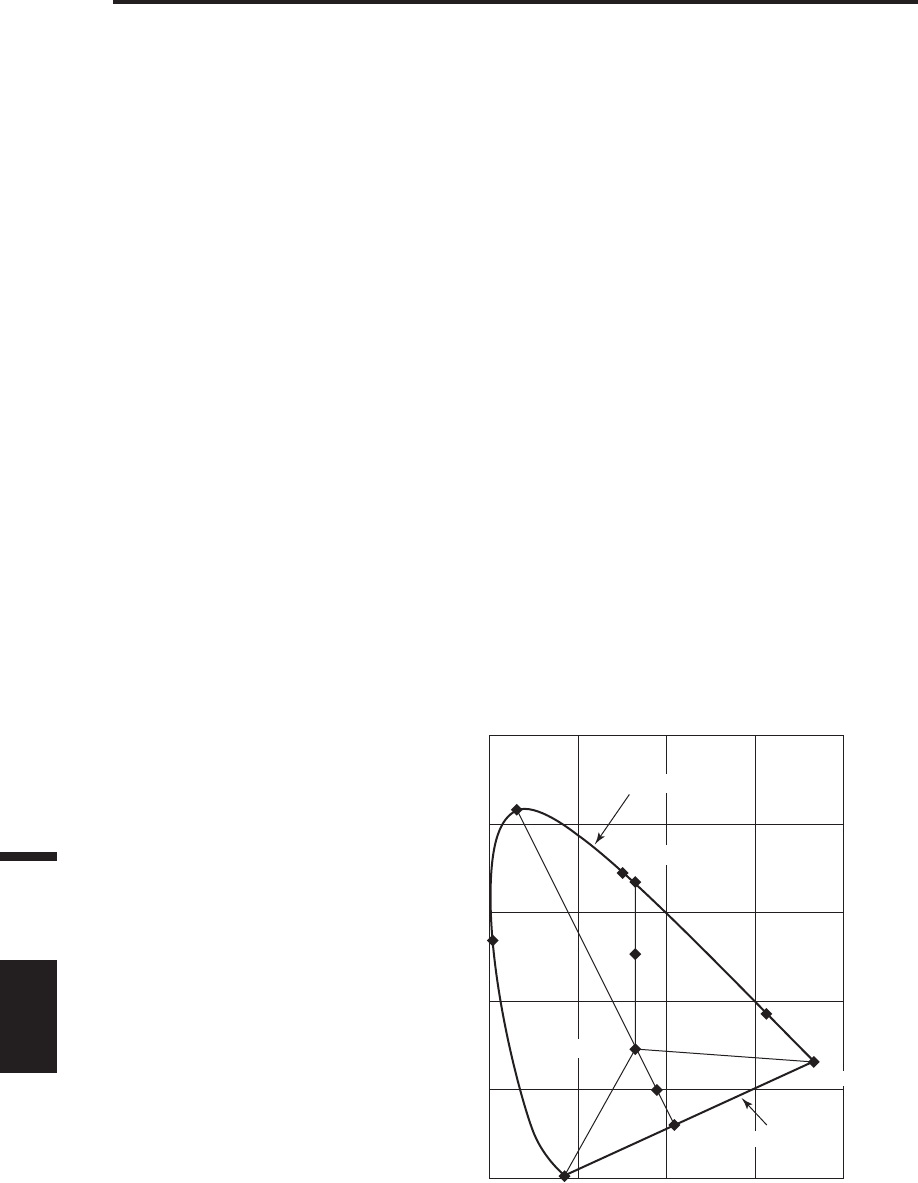
78
Explanation
In the x, y chromaticity diagram shown below, the curve VS
c
SR is the spectrum locus, and
point N is the white point.
Colors located in the region enclosed by the spectrum locus and the straight lines VN and
NR are referred to as spectral colors; colors located in the triangle NVR with the white point
N at the apex and the pure purple line VR as the base are referred to as nonspectral colors.
<Dominant wavelength and excitation purity (spectral colors)>
When the chromaticity point obtained by the measurement is C, the wavelength
corresponding to the intersection point S of the extension of NC with the spectrum locus
(curve VS
c
SR) is referred to as the dominant wavelength and indicated by the symbol λ
d
.
The ratio of the lengths of the straight lines NC and NS is referred to as the excitation
purity of color excitation C and indicated by the symbol p
e
.
<Complementary wavelength (non-spectral colors)>
When the chromaticity point obtained by measurement is C', the extension of NC' toward C'
does not intersect with the spectrum locus but only the pure-purple lines. In this case the
wavelength corresponding to the intersection point S
c
of the extension of NC' toward N with the
spectrum locus is referred to as the complementary wavelength and indicated by the symbol λc.
When the intersection point of the extension of the line NC' with the line VR (pure-purple
locus) is designated by S', the ratio of the lengths of NC' to NS' is referred to as excitation
purity and indicated by the symbol p'
v
.
The following equations are formulated, if each point is designated as the following
coordinates: (x
n
, y
n
): chromaticity coordinate of point N; (x
c
, y
c
): chromaticity coordinate of
point C; (x
λ
, y
λ
): chromaticity coordinate of point S, (x
c
', y
c
): chromaticity coordinate of
point C', and (x
p
, y
p
): chromaticity coordinate of point:
Excitation purity (spectral colors)
x
c
– x
n
y
c
– y
n
p
e
=
–
=
–
x – x
n
y – y
n
Excitation purity (non-spectral colors)
x
c
'– x
n
y
c
' – y
n
p
e
' =
–
=
–
x
p
– x
n
y
p
– y
n
Dominant wavelength/Excitation purity
Dominant wavelength on chromaticity diagram
y
0.8
0.6
0.4
0.2
0
0.2 0.4 0.6
x
550 nm
600 nm
780 nm
500 nm
380 nm
S
S
c
C
C'
S'
N
V
Spectrum locus
White point
R
Pure purple line
